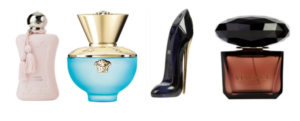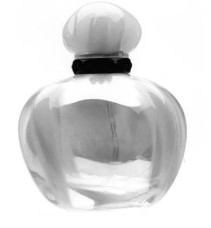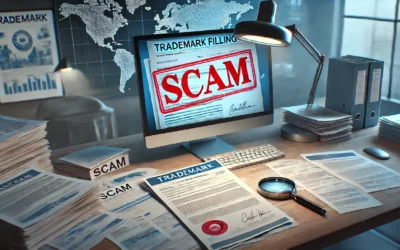The rise of innovative business models has introduced new ways to experience luxury products, with perfume decanting emerging as a notable trend in the fragrance industry.
What is decanting?
Perfume decanting is the practice of transferring authentic luxury fragrances from their original bottles into smaller containers. This service makes high-end perfumes more accessible to consumers who might hesitate to purchase full-size bottles. Beyond cost savings, decanting allows fragrance enthusiasts to explore multiple scents before committing to larger quantities.
The economics are compelling: while a typical luxury perfume might retail for hundreds of euros per 100ml bottle, decanted portions ranging from 1ml to 10ml typically cost between €10 and €30. These smaller quantities are marketed under the original brand name, with sellers emphasizing the authenticity of their products. To be clear, decanted fragrances are authentic genuine products, not counterfeits.
Legal aspects of decanting
The central legal question regarding decanting and rebottling of perfumes is whether the trademark owners can oppose repackaging and reselling of their products. In other words, can for example Chanel prevent another company buying authentic Chanel 5 perfume, bottling it into smaller units and re-selling it with profit to consumers as original repackaged Chanel 5 perfume.
This kind of situation is dealt with by a doctrine called “exhaustion” (or “first-sale” as it is known in the US). According to this principle, when a trademark owner sells a product bearing the mark, his rights with respect that that particular product and the trademark in it are “exhausted”.
In other words, the trademark owner cannot generally object to the re-sale of that particular product by its new owner. When the product is sold for the first time by the trademark owner, he captures the economic value in the trademark. The principle of exhaustion promotes market efficiency and consumer access.
Quality control and repackaging requirements
The rule for exhaustion is not absolute. Exhaustion does not take place if there are legitimate reasons to oppose the resale. This is especially the case where the condition of the goods has been changed or impaired after the first sale.
For example, if you buy an expensive 100 year old wine, it starts deteriorating immediately when you open it. In that case, it would be impossible to rebottle it without destroying the quality of the wine. Consequently, the trademark owner would have legitimate concerns to oppose the rebottling and resale. The resold product would be of much inferior quality, and this would be very harmful to the reputation of the original producer. In this example, the original brand owner could not oppose the resale of unopened original bottle, but could oppose the rebottling and subsequent reselling of the “damaged” product.
To safeguard the trademark owner’s legitimate interests, the repackaging must satisfy these requirements:
a) the products must be in original condition
b) the new packaging clearly states who has repackaged the goods and who the manufacturer is
c) the repackaged product does not damage the reputation of the trademark owner
d) the trademark owner is given notice, and on demand, supplied a specimen of the repackaged product
If the decanting affects the quality of the perfume sold, the trademark owner can oppose the use of the trademark even if the product is genuine. The decanting must be done in a way that the quality is not impaired.
The role of packaging in luxury products
Another risk is that luxury perfumes are often sold in luxurious high-end bottles. The bottle is often an important part of the brand, and it plays a crucial role in the luxury perfume market. Here are some examples to illustrate the point.
Often the packaging is so important for perfume companies, that it is registered as a trademark in its own right. For example, Cristian Dior has registered the following perfume bottle as a three-dimensional trademark.
For full details of the registration, see here.
Perfume companies could claim that when their product is taken out of their original bottle and sold in a small transparent glass vial, it is detrimental to the reputation of the brand and its aura of luxury. This is a real risk for decanters. When a producer of luxury perfume has invested heavily into distinctive and expensive product packaging, ripping the product from its original packaging is a bit like receiving a Rolex watch in a plastic bag or serving a Michelin star meal on a paper plate. The packaging is part and parcel of the brand’s experience and its aura of luxury.
Geographical scope of exhaustion
Another potential risk for decanters is that trademark exhaustion, at least in Europe, has a geographical dimension. The trademark rights in the EU are exhausted only when the original sale has been made in the European Economic Area (EU plus Norway, Iceland and Liechtenstein). This means that if the decanter buys the original product in for example in Morocco or Australia, it cannot rebottle and resell it in the European Union. If the product is put on the market outside of EEA, the trademark rights are not “exhausted” in the EU and the trademark owner can oppose the resale.
Conclusion
While perfume decanting offers consumers affordability and variety, it operates in a legal gray area. Businesses engaging in this practice must operate in a manner that ensures that the trademark rights of the original producer are exhausted. Particularly, they must ensure that the quality of the product is not compromised and that the resale does not harm the reputation of the producer.
Trademark owners also face their own strategic decisions. While they have the right to protect their brands, aggressive opposition to decanting could alienate potential customers and limit market expansion opportunities. Many companies from Jack Daniel’s to Hugo Boss have had to learn the hard way that heavy-handed crackdown can lead to significant PR problems and negative publicity.
Read more
How to deal with trademark bullies?
Act timely and decisively to end infringements of your mark





